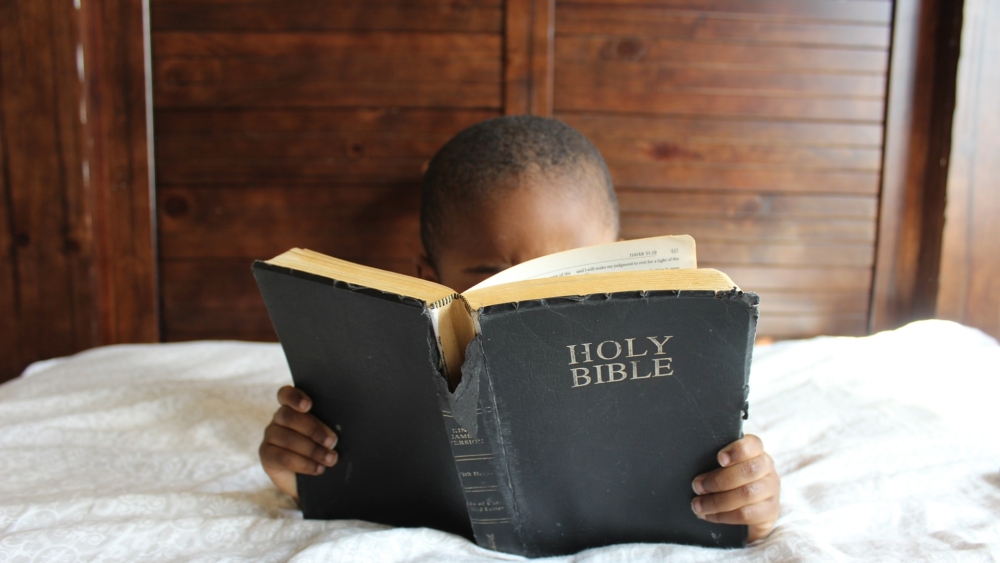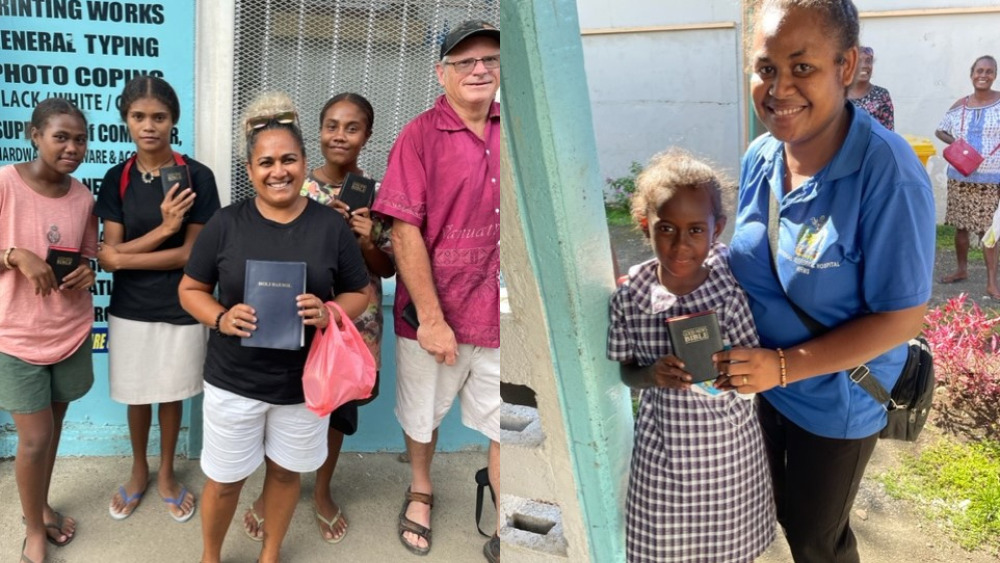Across the Oceania region, the opportunity to enlighten lives with God’s word is immense. The Bible already has a place in so many of these cultures, and people are crying out for God’s word: in their language, in their hands, in their hearts and in their lives.
“Multitudes of people need the Bible. Multitudes desire a Bible. There are desperate hands reaching out everywhere,” says Canadian missionary Dave Dever, who, together with Bible Society, distributes Bibles in the Solomon Islands.
“In all my years of giving Bibles out, only one lady in a shop has ever said ‘no’ to a Bible. At the pub, at the prisons, at the hospitals, the schools, in out of the way and hard to reach places, at the top of mountains and everywhere else, people desperately and gratefully receive a Bible … and need a Bible.”
As well as the desperate need for Bible distribution, in this region there are hundreds of languages without a Bible, and more that are crying out for contemporary revisions.
In response to requests from community leaders, Bible Society in the South Pacific currently has translation projects in multiple languages underway in Samoa, Tonga, New Caledonia and Vanuatu. Similarly, Bible Society PNG has a project revising the popular Tok Pisin Bible, and another supporting Bible translators in other languages that currently have no Bible.
The next step in illuminating the Bible to people in Oceania is literacy.
In each case, it is the speakers of these languages who desperately want the Bible in their language. So Bible Society is working to support the translation efforts, providing consultant checking of draft translations, as well as helping to resource translation efforts with pens, paper, computers, laptops, electricity and connectivity.
Yet the opportunity to enlighten lives around the Oceania region extends beyond Bible distribution, and even Bible translation. The next step in illuminating the Bible to people in Oceania is literacy. Among the United Bible Societies (UBS) worldwide, literacy is being acknowledged as the key to unlocking Bible translation for Bible engagement. Once a person knows how to read, the Bible in their language is accessible to them. Although there is literacy education available in countries in the Oceania region, it is most often in English, which poses a challenge because it is a second language to most of those learning.
“You can only learn to read and write well and use that skill later on efficiently – for let’s say, Bible engagement – if you speak the language,” says Dr Kimmo Kosonen, UBS Head of Literacy and Education. When children are educated in a language other than their first language, Kimmo says, “there are some children who never learn to read and write well.”

This obstacle to literacy is also the experience of Syd Gould, who has worked with the Huli speaking people of PNG for decades, in education and in Bible translation. “I am distressed that Huli children are not being taught to read their own language,” he says. “If they were, they would have access to the Huli Scriptures during primary school. As it is, very few will be able to adequately comprehend the Scriptures in English for many years.”
Bible Society Oceania is working towards building literacy projects to serve the region. In July this year, Ledua and Teu from Bible Society of the South Pacific (BSSP) attended training that was run by UBS. When pioneering Sunday school teacher training in a Fijian village, Ledua discovered that some kids in the village were not able to read, although they attended school. While Fijian schools – helped by Australian aid – are now encouraging literacy, it is all in English, and not in the mother tongue of the majority of Fijian children. Ledua adds, “If Bible Society was able to use mother tongues for literacy materials, it would be great as a stepping stone for children to their second language.”
Teu, who serves as Fiji Mission Officer for BSSP, was encouraged and inspired by the literacy training. Among the diverse cultures and languages of the South Pacific, Teu says, “Most schools are removing vernacular studies from their curriculum and the effects are seen in the number of school dropouts and non-readers in schools and even Sunday school.”
Teu believes that “literacy projects will give Bible Society an advantage to help communities and churches in Bible engagement, by helping communities use their mother tongue. This will help preserve their God-given identity (their language) and move them closer to engaging with the word of God.”
Karen Mudge is Impact and Communications Manager for Bible Society Australia. Click here to illuminate God’s word across Oceania This Christmas, helping Bible Society Australia Open The Bible to our neighbours.
Make a Donation
Illuminate God’s word across Oceania This Christmas, helping Bible Society Australia Open The Bible to our neighbours.


